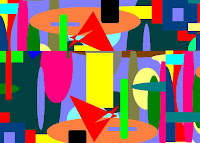Israel & South Africa: The Apartheid Connection II
In the second part of his special report, Chris McGreal investigates the clandestine alliance between Israel and the apartheid regime in South Africa at the highest levels of authority. Here are some excerpts:
Reitzer saw no contradiction in surviving the Holocaust only to sign up for a system that was disturbingly reminiscent in its underpinning philosophy, if not in the scale of its crimes, as the one she had outlived. She vigorously defended apartheid as a necessary bulwark against black domination and the communism that engulfed her native Yugoslavia. Reitzer let slip that she thought Africans inferior to other human beings and not entitled to be treated as equals. I asked if Hitler hadn't said the same thing about her as a Jew. She called a halt to the conversation.
Israel was openly critical of apartheid through the 1950s and 60s as it built alliances with post-colonial African governments. But most African states broke ties after the 1973 Yom Kippur war and the government in Jerusalem began to take a more benign view of the isolated regime in Pretoria. The relationship changed so profoundly that, in 1976, Israel invited the South African prime minister, John Vorster - a former Nazi sympathiser and a commander of the fascist Ossewabrandwag that sided with Hitler - to make a state visit.
Vorster, whose army was then overrunning Angola, told his hosts that South Africa and Israel were victims of the enemies of western civilisation. A few months later, the South African government's yearbook characterised the two countries as confronting a single problem: "Israel and South Africa have one thing above all else in common: they are both situated in a predominantly hostile world inhabited by dark peoples."
The biggest secret of all was the nuclear one. Israel provided expertise and technology that was central to South Africa's development of its nuclear bombs. Israel was embarrassed enough about its close association with a political movement rooted in racial ideology to keep the military collaboration hidden.
"At the UN we kept saying: we are against apartheid, as Jewish people who suffered from the Holocaust this is intolerable. But our security establishment kept cooperating."
By the 1980s, Israel and South Africa echoed each other in justifying the domination of other peoples. Both said that their own peoples faced annihilation from external forces - in South Africa by black African governments and communism; in Israel, by Arab states and Islam. But each eventually faced popular uprisings - Soweto in 1976, the Palestinian intifada in 1987 - that were internal, spontaneous and radically altered the nature of the conflicts.
Stepping into modern Israel, anyone who experienced the old South Africa would see few immediately visible comparisons. There are no signs segregating Jews and non-Jews. Yet, as in white South Africa then and now, there is a world of discrimination and oppression that most Israelis choose not to see.
Israeli soldiers routinely humiliate and harass Palestinians at checkpoints and settlers paint hate-filled slogans on the walls of Arab houses in Hebron. The police stop citizens who appear to be Arabs on West Jerusalem streets to demand their identity cards as a matter of routine.









0 Comments:
Post a Comment
<< Home